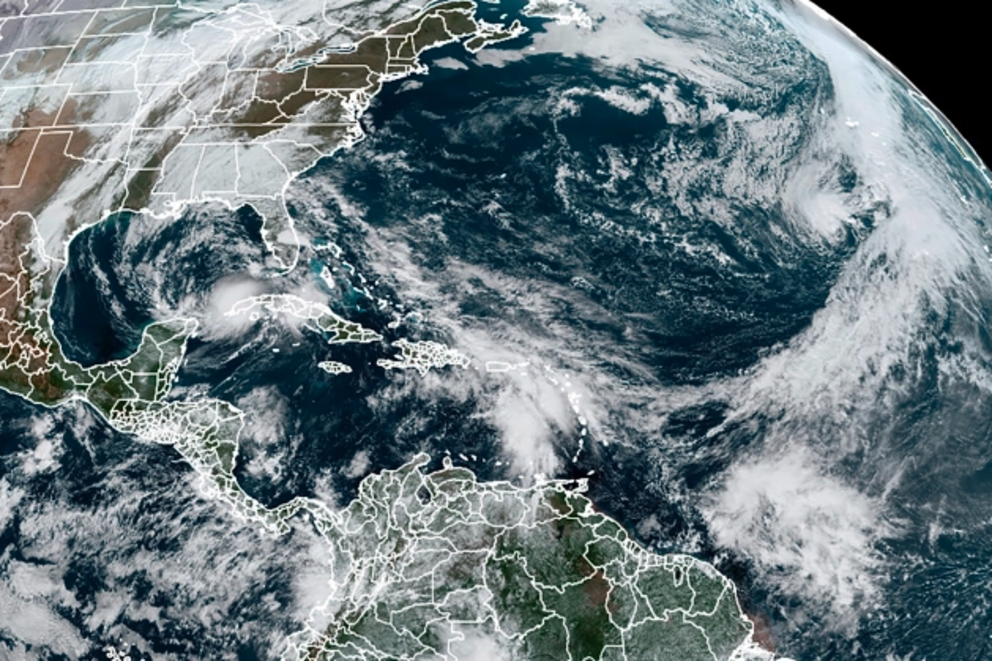Gulf Stream weakest in 1000 years - prelude to ice age
Gulf Stream is weakest it's been in more than 1,000 years, study says

This Tuesday, Nov. 10, 2020, satellite image made available by NOAA shows Tropical Storm Eta at 10:40 a.m. EST in the Gulf of Mexico, Theta, right, and a tropical wave to the south that became Tropical Storm Iota. An overheating world obliterated weather records in 2020 — an extreme year for hurricanes, wildfires, heat waves, floods, droughts and ice melt — the United Nations’ weather agency reported Wednesday, Dec. 2, 2020. (NOAA via AP)
A group of scientists from Europe presented new research this week claiming that the Gulf Stream is weaker now than it's been at any point over the last 1,000 years. The Gulf Stream is an Atlantic Ocean current that plays a largely hidden role in shaping weather patterns in the United States. Much has been researched and learned about the influential current over the past 500 years, particularly due to the expertise of one of America's Founding Fathers, Benjamin Franklin.
But in recent decades, a shift in the Gulf Stream's circulation has become weaker than any other time over the last millennium, according to a recently published study by scientists from Ireland, Britain and Germany. The weakening of the Gulf Stream, formally known as the Atlantic Meridional Overturning Circulation (AMOC), can be mostly pinned to one catalyst, the researchers said: human-caused climate change.
The Gulf Stream current moves a massive amount of water across the Atlantic Ocean. According to Stefan Rahmstorf, one of the study's authors, it moves nearly 20 million cubic meters of water per second, acting like a giant conveyor belt.
How strong of a current is that? "Almost a hundred times the Amazon flow,” he told the Potsdam Institute.
